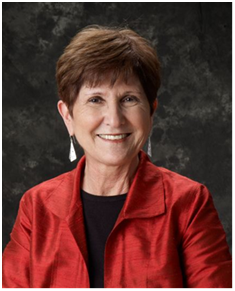
When Heidi Sitcov’s father was diagnosed with a gastrointestinal stromal tumor and referred to a hospice with just three months to live, her immediate response was to seek out a physician and system that could provide her father with coordinated care. A key component of that care included use of electronic health records (EHRs), where his cancer diagnoses, treatments, and treatment plans would be available for his entire provider team to access and utilize in his continued care. It was that decision that turned her father’s three-month prognosis into nearly four additional years of quality living.
ONC talked to Heidi about her father’s – and her family’s – story and how EHRs aided in giving her family peace-of- mind, as well as more time with their father.
ONC:
Tell us about your father’s diagnosis.
SITCOV:
My family had planned to surprise my dad on his 85th birthday with a surprise visit to Buffalo, NY, but it was my siblings and I who were shocked when we arrived. Upon arrival, our mom told us our dad had been admitted to the hospital the night before with severely swollen ankles, extreme fatigue, and pain in his abdomen. She said he had already been diagnosed with “some type of mass in his intestines that was thought to be cancerous.” We immediately went to the hospital, and in the course of the next three days, we were told his mass was malignant and he had just three months to live.
ONC:
Had your father’s doctors indicated there was any reason for concern during previous visits?
I knew my dad had been complaining of vague abdominal discomfort, unusual fatigue, and was not feeling like himself the previous year. He kept going to his internist’s group, often seeing different doctors, and getting different treatments and diagnoses each time. For example, some doctors said his iron level was low, some said he was simply getting older and that fatigue was natural, and some credited his constipation to an inadequate fiber intake.
I was very angry that while a malignant tumor was growing, all my dad was given over the course of that year were iron pills, stool softeners, B12 shots, and pain pills. Everyone in the practice had their own idea of what was wrong, as each doctor could only see the previous doctor’s notes; that is if the secretary could find the chart. In short, there was no consistency in his care and no real assessment of his overall health picture.
ONC:
What was the turning point in your father’s care and treatment for his diagnosis?
My dad was discharged home with a referral to a hospice, and it was at that point that I advised him to immediately switch doctors and find someone that used an integrated EHR system where his diagnoses, treatments, and plans of care would be available for all his doctors to see.
After seeking out a new doctor that utilized EHRs, we knew within the first visit that it was a positive move, as they all had access to each other’s notes. This was the turning point that turned the three-month prognosis into more than three years of quality life.
ONC:
What role do you feel the EHR system played in your father’s care and extended life expectancy?
I am convinced that the immediate availability of his medical records among all his specialists, and our family’s ability to email with his physicians (I could even email my dad’s doctors with his permission), allowed for better treatment and outstanding coordination of care.
Additionally, my parents were able to review test results very quickly via email or by checking my dad’s online chart. They were also provided with an After-Visit Summary of every check-up that allowed them to easily relay accurate information to me and my siblings. E-prescribing prevented errors and allowed for drug interactions to immediately be tracked and flagged, if necessary. And, most importantly, the EHR system ended redundant testing and procedures due to lack of chart coordination, and this system allowed my dad to feel that the doctors really “knew him.”
ONC:
In what other ways did the EHR system help your family give your father the best care?
The EHR system allowed my family (my mother, siblings, and me) to review his ongoing issues list and medication list, which allowed for accurate adherence to lengthy medication regimens. Simple tasks were made easier through the EHR system, such as appointment scheduling, billing (which was more accurate due to concise coding), online reminders for appointments, and online prescription renewals.
In fact, the EHR system benefited my father and my family up until his last days. During my dad’s final weeks, the hospice had clearly documented records that provided a complete summary of my dad’s medical problems.
My dad died peacefully and pain free at inpatient hospice July 11, 2010, with his family at his side. He said he was ready to go, and he felt he received the best care possible. I attribute that to his doctors’ access to up-to-date information regarding lab tests, CAT scans, physician notes, hospitalization discharge summaries, and links to evidence-based care. The EHR system gave him nearly four more years, and I am at peace knowing that under the worst of circumstances, my dad received the best care possible.




